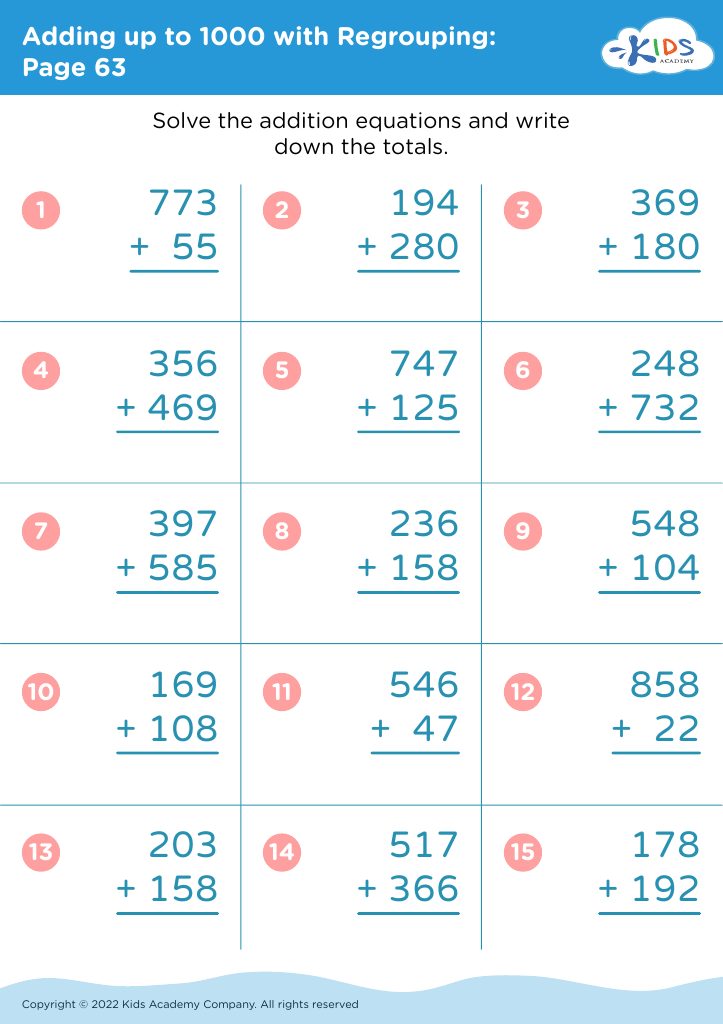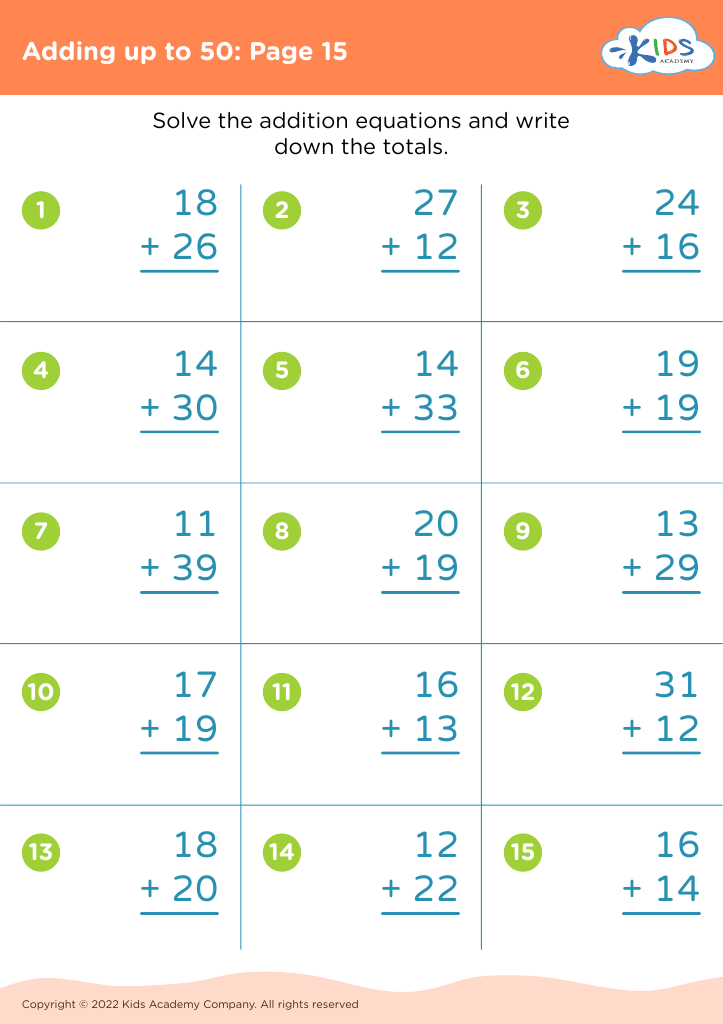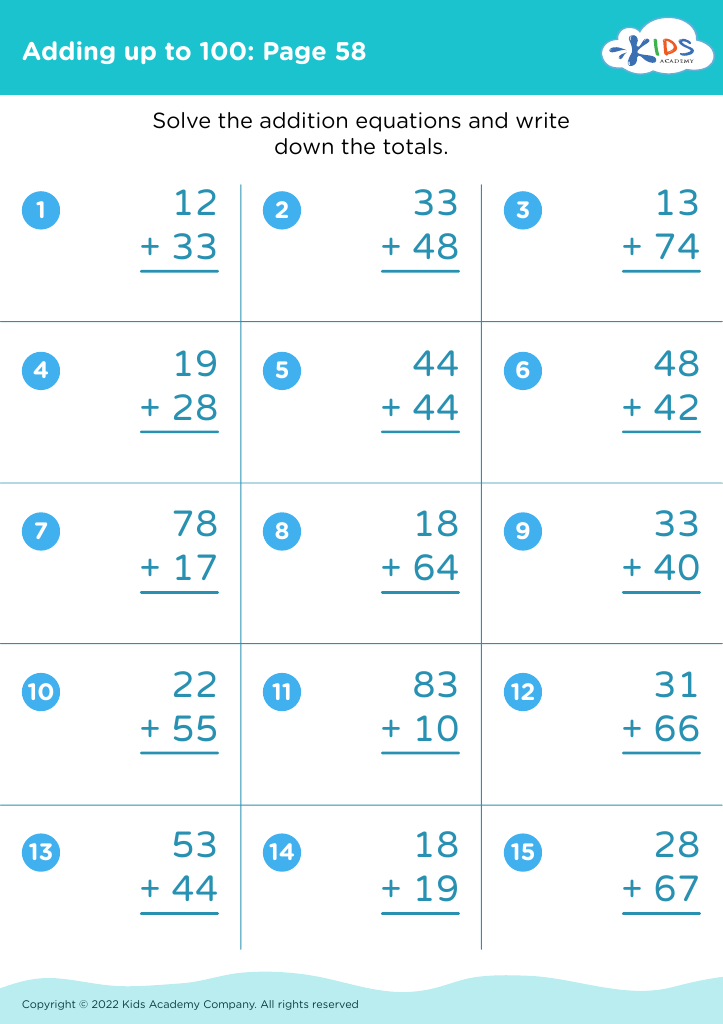Fraction identification Addition Worksheets for Ages 3-9
5 filtered results
-
From - To
Discover our engaging Fraction Identification Addition Worksheets, designed specifically for kids aged 3-9! These interactive resources help young learners develop a solid understanding of fractions while mastering addition skills. Our worksheets use colorful visuals and fun activities to make learning about fractions enjoyable and effective. Perfect for home or classroom use, these worksheets support your child’s early math education by fostering critical thinking and problem-solving abilities. With various levels of difficulty, children can progress at their own pace, ensuring a strong foundation in mathematics. Download your worksheets today and watch your child enjoy the adventure of learning fractions and addition!
Fraction identification and addition are foundational skills in early mathematics that have far-reaching implications for children's cognitive development. For children aged 3-9, understanding fractions lays the groundwork for more advanced mathematical concepts. Engaging with fractions during these formative years helps foster an intuitive sense of quantities, relationships, and the part-to-whole concept.
Parents and teachers should care about this topic because mastering fractions enhances children's problem-solving abilities and encourages logical reasoning. Early exposure to fractions aids in developing critical-thinking skills, which are transferable to various subjects across their academic careers. Fractions are omnipresent in real-life situations—cooking, measuring, sharing—and recognizing their importance in daily contexts reinforces mathematical thinking.
Moreover, introducing fraction identification and addition in a playful and engaging manner makes learning enjoyable, stimulating children's curiosity and motivation. Strong foundational skills can prevent difficulties in later grades, where fractions are often a stumbling block for many students. By nurturing a positive attitude towards fractions and mathematics as a whole, parents and teachers can build confident learners ready to tackle more challenging concepts in the future. Investing time and resources in teaching fractions early on can lead to long-term academic success and an appreciation for math in everyday life.






















